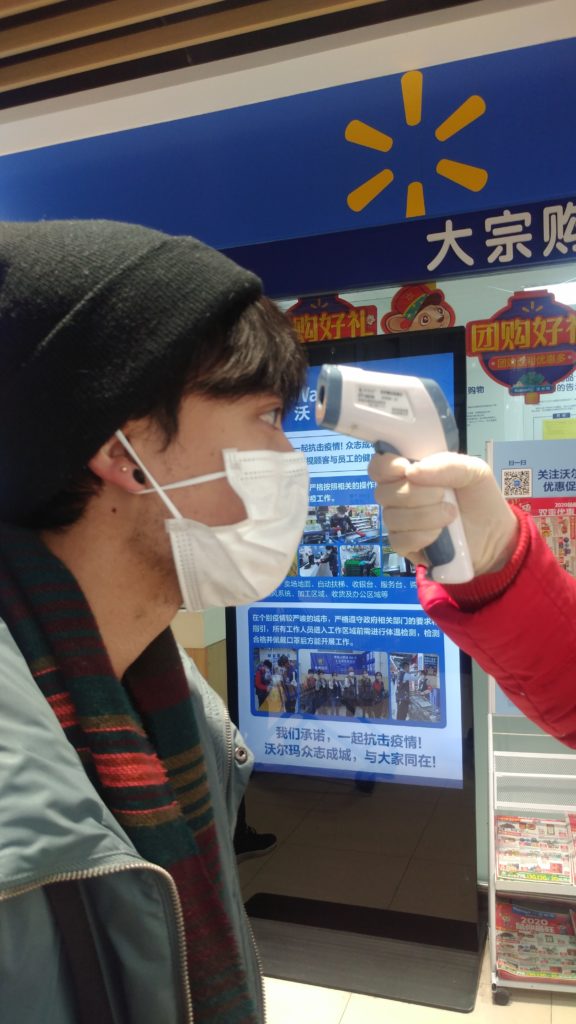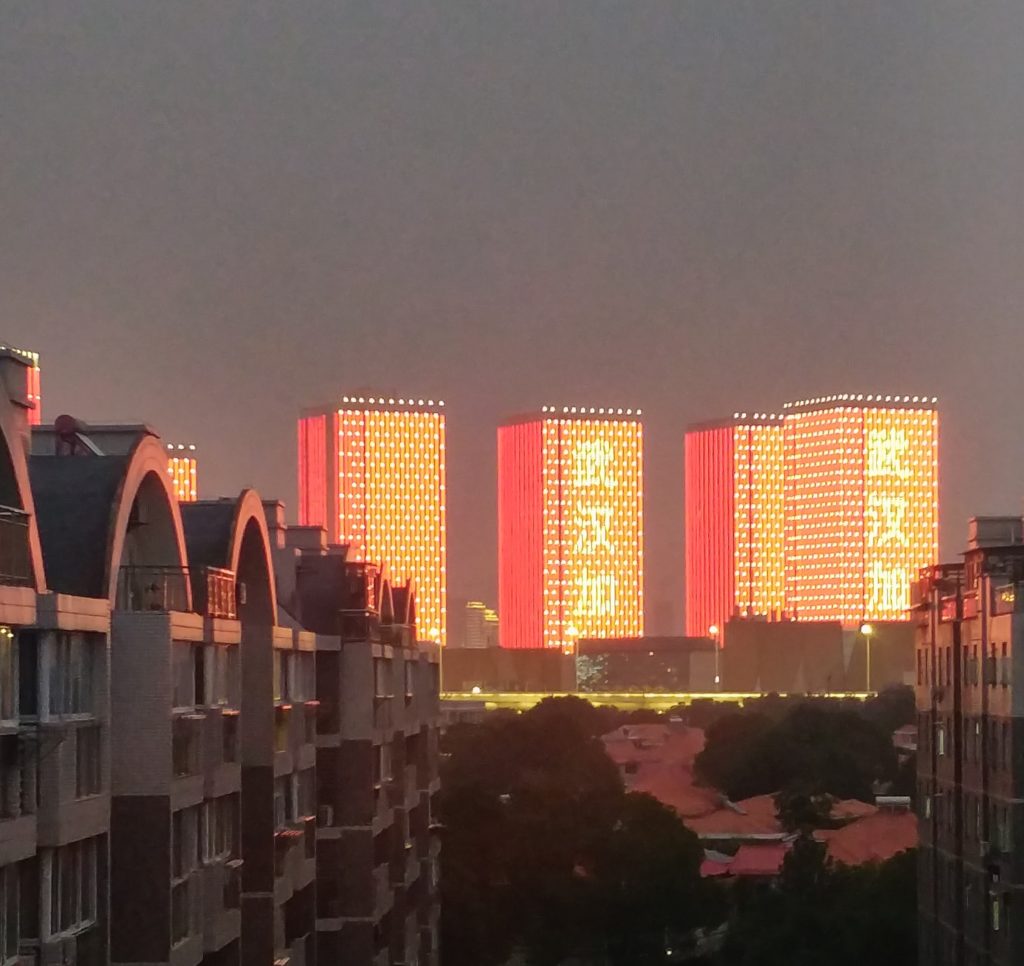
The last few days provided me the rare view of seeing inside real fear on a large scale as a tense pall envelopes Wuhan, a city of humans not statistics. Here a few examples.
The second rescue plane was cancelled two days ago. People leave frantic messages on WeChat about babies and paperwork problems. Real information remains scarce while rumors explode.
The plane’s departure is now set for 15 hours from now. We have to get our own transportation to an airport 40 miles away in a city with numerous army-patrolled stops along the way. The Chinese want to know everything about the drivers taking us to the airport. I wouldn’t be surprised if they put them in isolation for two weeks.

I’m trying to keep a wait-and-see attitude about the flight tonight. Hope and fear, both cruel imposters, are best avoided.
I live in an empty seven-story apartment on a deserted college campus in a less-densely populated area of Wuhan. I feel relatively safe. Most of the city is made up of thousands of 30-or-40 story condominiums where life is living hell as residents wait for the fear to subside.
Elevators, shared spaces such as hallways, air systems, and floors can infect. People have barricaded themselves inside these 1100-square-foot prisons. WeChat friends paint a stressful existence of short tempers, numbing boredom, and pervasive terror.
My friend, Xing, said her father had three friends who died. Jane, a Chinese friend, had a neighbor die and one that is sick. She luckily left Wuhan to visit her daughter in Shanghai. She can’t go home and is happy about it.
My friend Liz, a teacher from South Africa, remains in Wuhan because her country won’t send a plane because it has few resources or citizens in the city. A lifetime smoker with previous lung issues, she believes contracting the virus is a death sentence.
I saw a taxi cab driver in a Haz-Mat suit two days ago. Taxis now take sick people to the hospital. No one wants to ride in the few of them that circle the campus.
A student writes on WeChat, “McDonalds’ artificial customer told me that the Wuhan store is not expected to reopen for three months. I can’t imagine living without McDonalds for three months. It’s too painful.”
My friend and fellow teacher, Russell, left Wuhan for a Thailand vacation prior to the quarantine. He tried to book a room in Cheng Mai where he had stayed before. They said sure but found a past email from him mentioning Wuhan. They cancelled the reservation.
Peter, a Chinese teacher, said he cleared a two-week quarantine period after exposure to the virus. Today he volunteers in the community on his first day back over his wife’s strenuous objections. “I feel I should do something to help,” he says.
Another student on WeChat sums up Wuhan best: “Now I’m inexplicably sad…..An upsurge in negative emotions. Maybe I’ve been addicted to my phone too long. Or maybe I’m a little edgy. You want it fast, but you can’t have it. I think I’m going to go to bed today. Consider this my day off even though I’m on vacation every day. I probably hate myself so much. And I’m going to try and live with that. Still struggling.”
Yes, Wuhan continues to struggle. Keep the city and its’ people in your thoughts and prayers. The people who live in this city are humans, not statistics.
John McGory has lived in Wuhan for six years. He is an author of the book Seeking Balance: The ultimate guide to English-speaking excellence for the shy, foreign, or frustrated.
